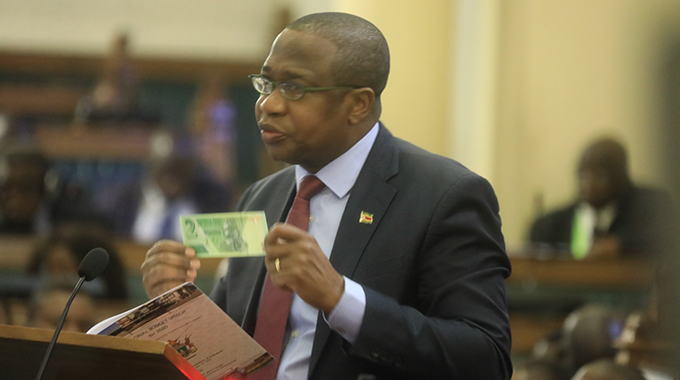
Herald Reporter
Diesel and petrol prices are likely to be more stable from now on after the Government reverted to specific excise duties on these two fuels and on paraffin.
This comes after several months of applying a percentage duty to ensure tax collections rose in line with inflation.
The switch implies that the Government is now reasonably certain that the high level of stability seen in the exchange rate over the last two months is likely to continue and that the Zimbabwean consumer can be given modest protection against fluctuations in world oil prices and a simpler tax structure applied to fuel prices.
In a statutory instrument gazetted on Wednesday, Finance and Economic Development Minister Mthuli Ncube set the duty on petrol at $4,44 a litre and diesel and paraffin at $4,26 a litre.
Since the beginning of August the duty on petrol has been 45 percent and 40 percent on diesel and paraffin.
The percentages were applied to the landed cost of the fuels, that is the Zimbabwe dollar equivalent, at the interbank rate, of the cost of getting them into the country.
The new fixed charges are slightly under the duty figures used by the energy regulator, the Zimbabwe Energy Regulatory Authority (ZERA), in its last price formula table and, so long as the exchange rate and world oil prices do not change, the prices of the three fuels could drop by a few cents per litre.
But the change will be tiny as the minister set his new specific taxes at very close to what his percentage duties were last producing.
Fuel imported under the permitted schemes to be legally sold retail in US dollars have attracted much higher taxes since the beginning of August, US$0,45 a litre for petrol and US$0,40 a litre for diesel and paraffin.
At present exchange rates those
duties translate to more than $7,24 for petrol and $6,44 for diesel and paraffin although the actual duties have to paid in US dollars under these schemes.
But this differential taxation is the main reason why fuel sold legally in US dollars is about 30 percent more expensive at current exchange rates than fuel sold in Zimbabwe dollars.
Despite high duties on petrol, the pump price is lower than that of diesel because it is blended with up to 20 percent anhydrous ethanol distilled in Zimbabwe’s Lowveld which brings down the landed price.
Otherwise the landed price is a combination of the crude oil price, refining charges, shipping charges to Beira, Beira port charges and the cost of using the Beira-Feruka pipeline. All these charges are in foreign currency.
The latest Zera table shows the landed cost of diesel at just under US$0,59 a litre and the petrol-ethanol blend price at just under US$0,55 a litre. These reflect the present low international oil prices.
Besides the landed cost converted at the interbank exchange rate, and the taxes, the Zera formula tables show the mark-ups allowed to the oil company, of around 10 percent, and to the service station that sells the fuel to motorists of around 12,5 percent.
For several years, Zimbabwe had specific duties on fuel.
In January these were raised significantly to cope with the serious cheating and illegal re-export of fuel.
They were reduced moderately a little later as the currency allocated to fuel switched from special allocations at 1-1 to interbank rate allocations from late May.
But in his mid-year fiscal review and supplementary budget, Minister Ncube switched to the percentage ad valorem taxes, explaining that he needed to follow inflation.
At that stage he was charging duties of $1,15 on petrol and $0,90 on diesel and paraffin and the switch to percentage taxes saw a jump in fuel prices.
Further jumps were recorded as the interbank exchange rate fell, sometimes sharply, before reaching a high level of stability in the last week of September this year with only marginal monthly falls since then.
The development comes as Government is working flat out to improve the fuel supply situation that worsened last week, resulting in winding queues at most service stations countrywide.
Energy and Power Development Minister Fortune Chasi on Tuesday attributed fuel supply bottlenecks to the rolling over of Letters of Credit (LCs).
LCs help reduce the payment risks on international trade transactions and allows a buyer’s bank to guarantee payment to a seller if certain criteria are met.
In view of the prevailing foreign currency shortages, the majority of companies depend on LCs for critical imports such as fuel, raw materials and equipment.
Said Minister Chasi: “There was an interruption last week regarding fuel because it coincided with a situation where there were efforts to roll-over the Letters of Credit, so that caused the queues that we began to see but the National Oil and Infrastructure Company (NOIC) has increased the pace at which it has been collecting fuel from Msasa and we asked them to work round the clock until the situation has been regularised.”
He said efforts were being made to ensure motorists did not spend long hours in queues.
